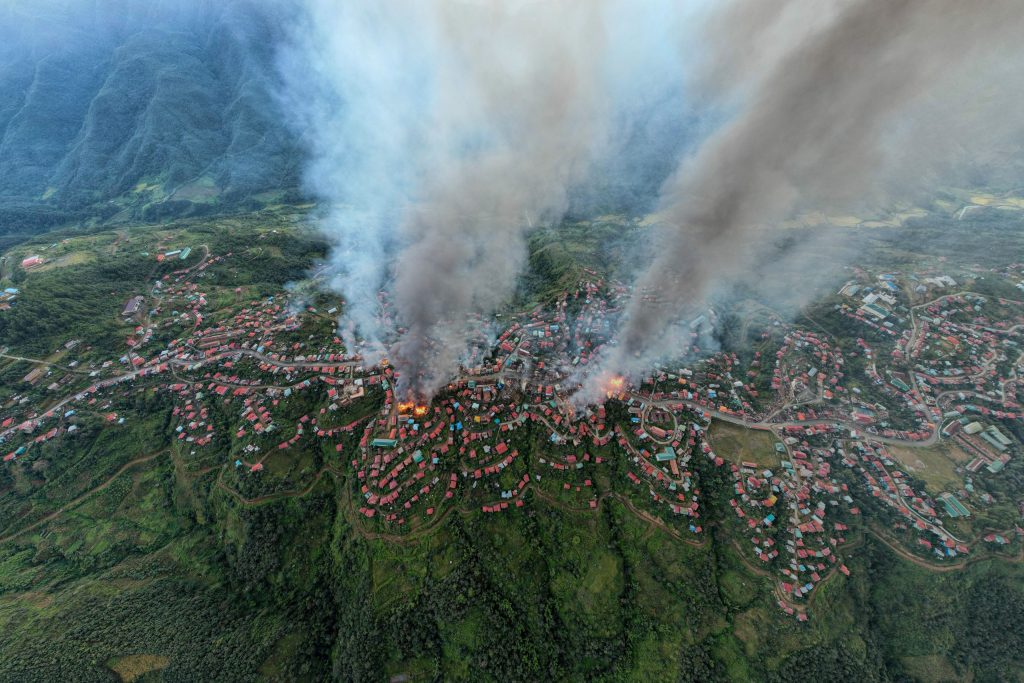Data Matters No. 36
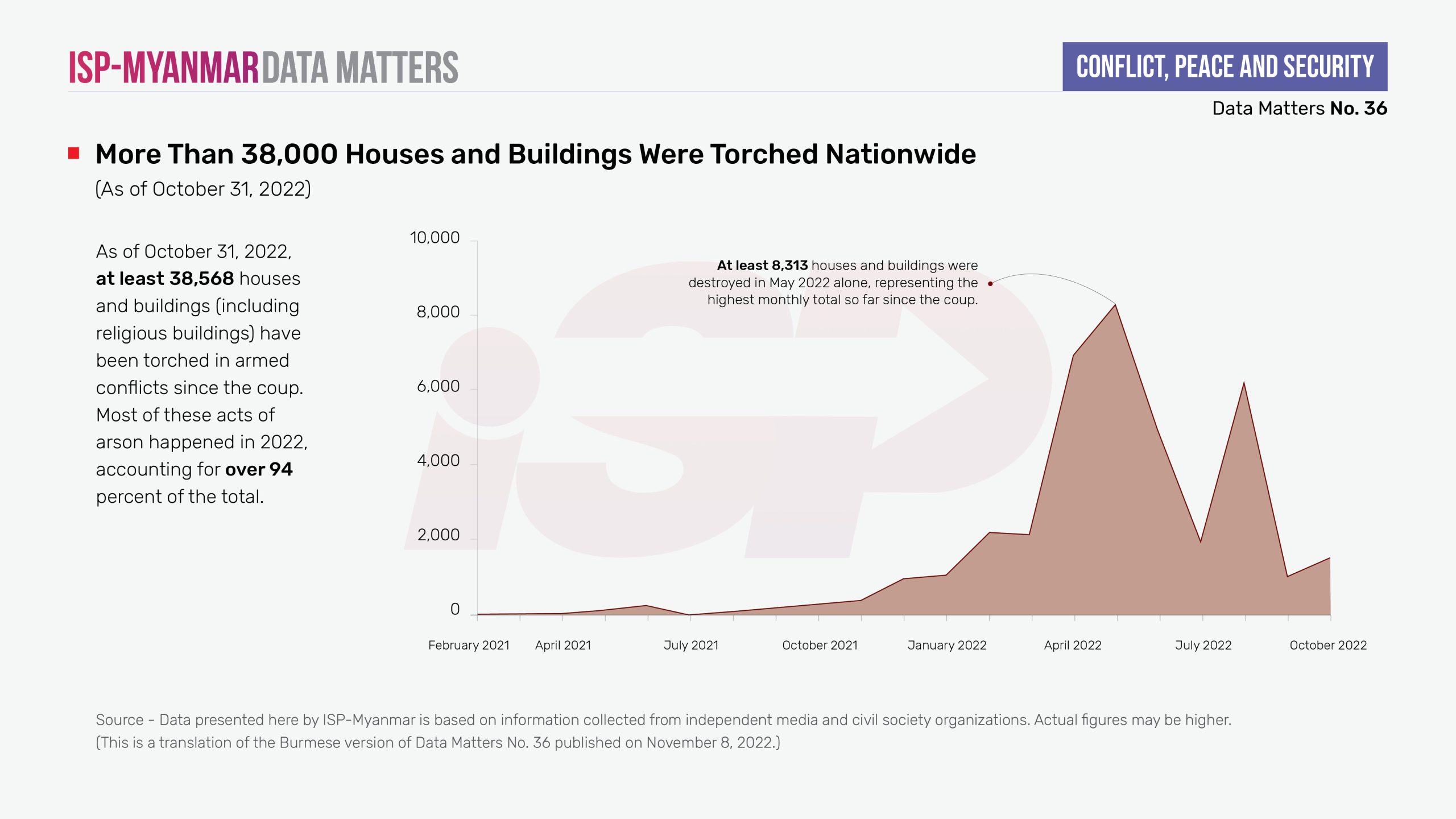
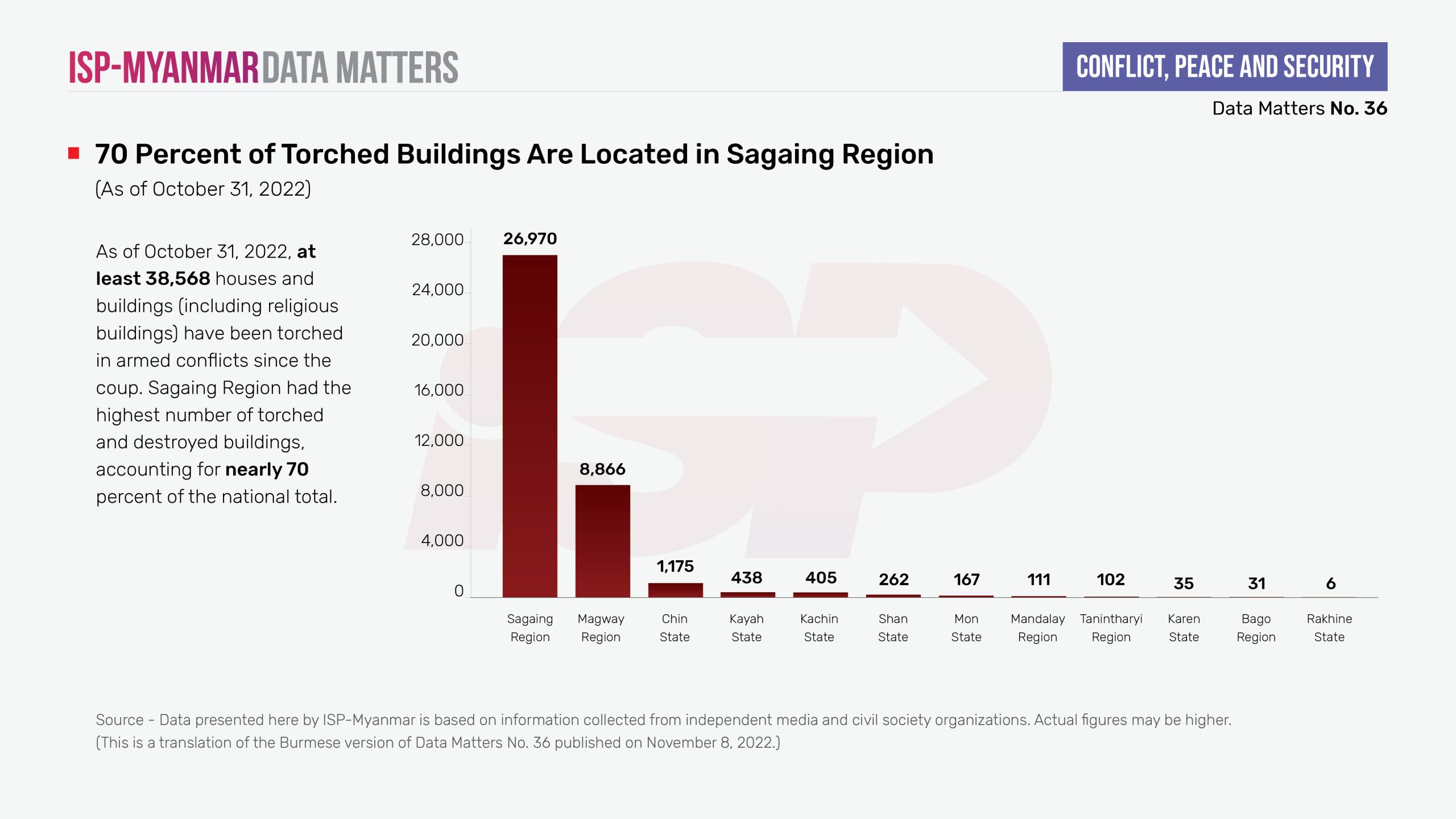
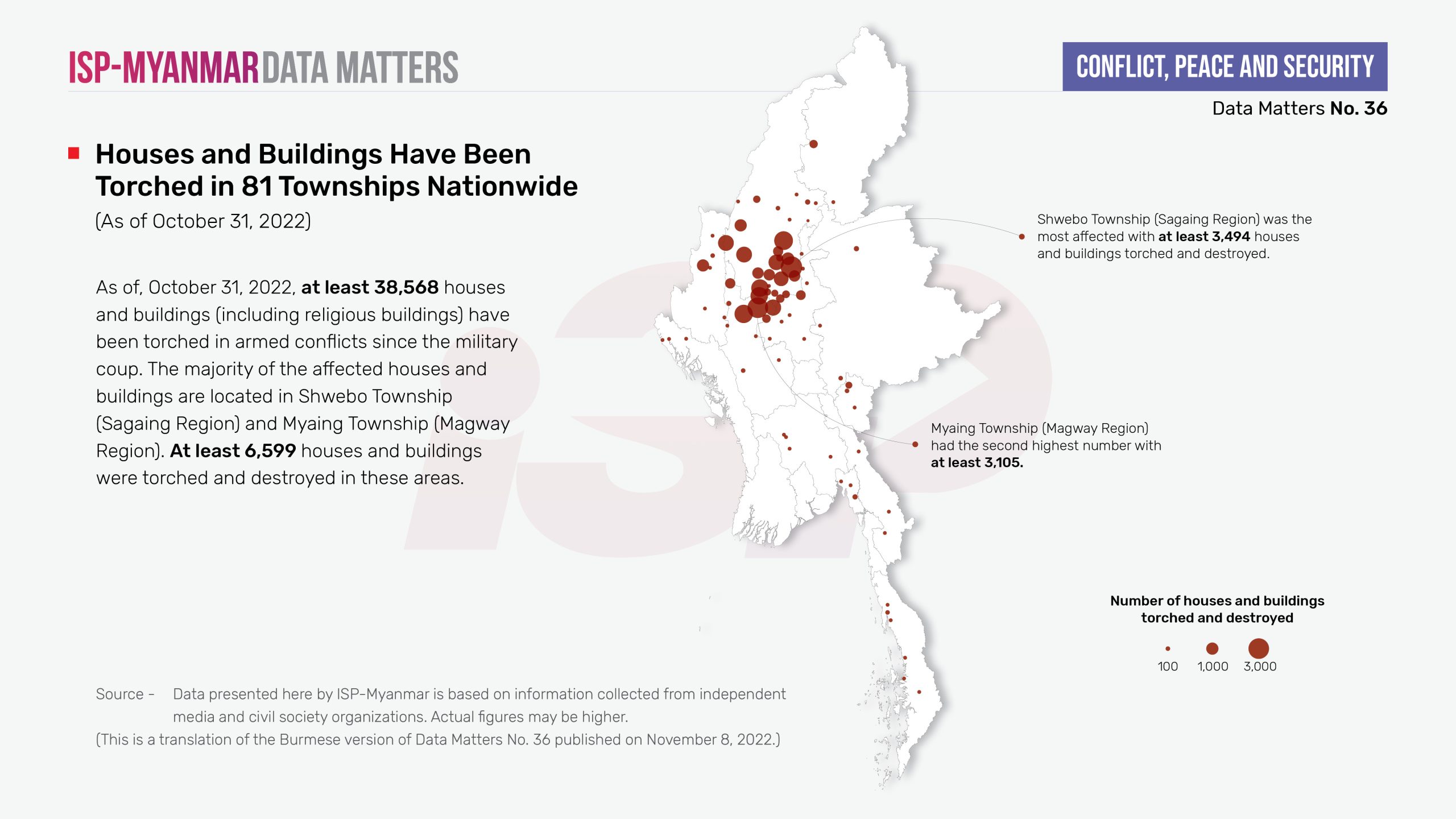
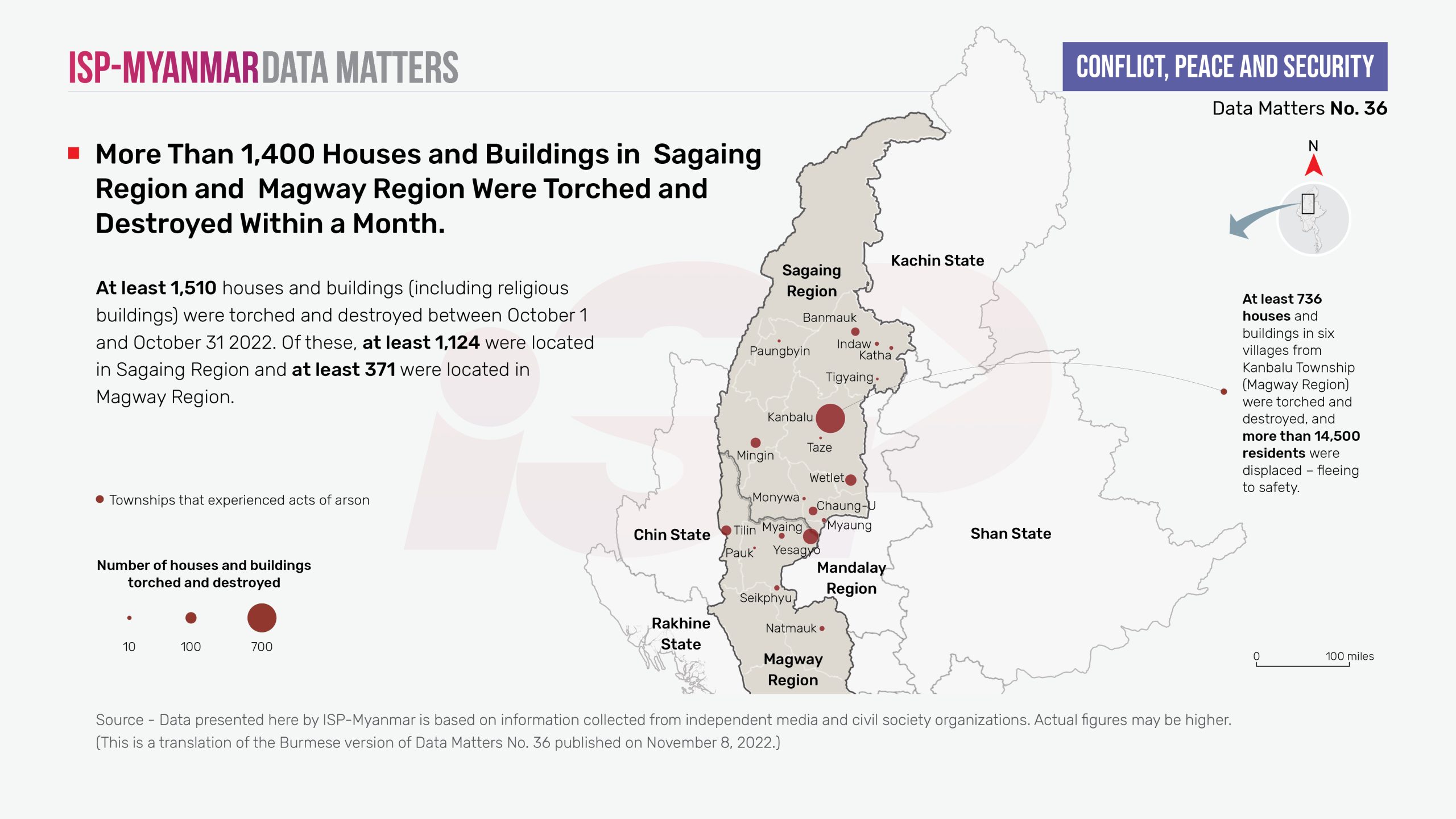
As of October 31, 2022, at least 38,568 houses and buildings (including religious buildings) have been torched and destroyed during armed conflicts since the coup. The number of torched buildings increased this year and it accounts for over 94 percent of the total. Sagaing Region has the highest total so far – with more than 26,970 houses and buildings destroyed since the coup. Nationwide, buildings have been torched in 81 township, and of these, Shwebo Township and Myaing Township have suffered the most.
The number of torched buildings is still rising. In October alone, at least 1,124 buildings were torched in Sagaing Region, along with 371 in Magway Region.
∎ Why does it matter?
By studying the post-coup situation, further research can be conducted to examine whether there has been a change in conditions related to Myanmar’s peace process. In addition, by looking at the number of civilian fatalities and injuries, how they were killed and wounded, and the number of people displaced by fighting, it is possible to examine whether or not armed forces have committed human rights violations from the perspective of transitional justice.
∎ Other relevant readings
On-the-ground reports from ethnic news organizations and other independent media groups provide regular updates about conflict situations, their impact, and the collateral damage in the aftermath of the military coup. These include reports of civilian fatalities, houses torched, and rising refugee and IDP issues on the ground. In addition, records and reports by United Nations organizations such as the United Nations Office for the Coordination of Humanitarian Affairs (UNOCHA), and other independent local and foreign organizations also provide information about the ongoing conflict situation in Myanmar.

